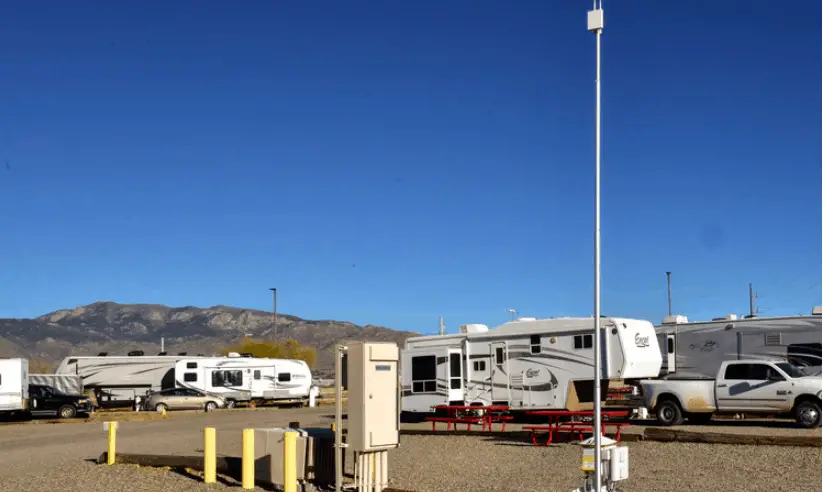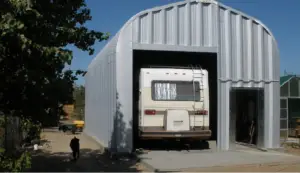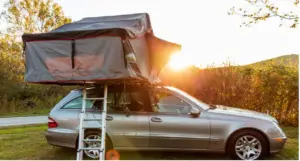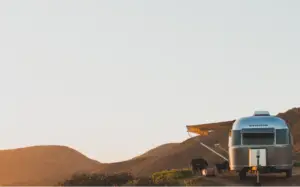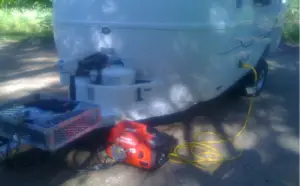As exciting as it is to shop for your first RV, it can be a somewhat daunting experience. Choosing the right color scheme, floor plan and overall appearance is not easy. Also if you’re a first-timer, it means that you will probably make a few mistakes.
Unfortunately, the RV you have set your heart on buying might look great, but could end up being a really bad deal because of something you have overlooked. Apart from choosing the right type of RV, you need to validate multiple things. Different types of RV’s include travel trailer, Class A motorhome, Class C RV, Class B RV or fifth wheel.
Following are 15 things you should know before buying a RV. This will make it easier for you to choose the RV that suits your needs best and ensure that the one you buy is not a mistake!
1. Do some research before talking to a salesman
It’s hard to not get overly excited when you visit a show room or trade show with a whole
variety of shiny new RVs. Then you talk to a salesman and everything he says convinces you to buy a certain model.
However, it is way better to do some research of your own before shopping for your RV. This will help you get all the information and facts that are important to you.
It is the salesman’s job to do whatever he can to make a sale. So don’t be swayed by discounts or fantastic financing that he is offering. Remember, in the end, it is you who will be paying for the RV.
2.Did a reputable company build the RV you are interested in?
There are numerous manufacturers out there. Some of them might use low quality materials and build as many RVs as possible just to get them sold. If you buy a lemon and move it off the lot, then it becomes your problem. So make sure that the RV you buy is the best quality possible, built by a well-known manufacturer.
3. Talk to others about their experiences
Talk to people who own the types of RVs you are interested in. Find out if they have had any problems and also what they really like about the RV and the company that built it.
Ask how long they have had the RV and if they would buy the same brand in future. Make sure to talk to at least five to ten owners to get a good idea about the company and their brand of RV. Remember, if the people you talk to had good experiences, then so may you.
4. Test drive before you buy
Buying a RV as is, is the same as buying a house without doing a home inspection. Or a car without test driving it. Ask if you can take the RV for a test drive. See how it handles on different road conditions and to check if anything is loose or broken that needs to be replaced or repaired.
5. Don’t be impulsive!
It is important to not be impulsive and think things through carefully. Talk with your partner/spouse to make sure that the decision you make is the right one. Sure, the RV industry is really hot right now. But it doesn’t get rid of the fact that buying impulsively could mean problems for you.
If you think that the RV you’re interested in is the right one for you, put down $1000 to secure it for a few days to give you time to do some research. Also, buying brand new may not be always good. With depriciation high in RV’s a used one can make a great deal.
6. Make a checklist
Once you know what features you want and need in your RV, the next thing you should do is list them in order of importance. You might have to swap a couple of your wants for a few needs, but the important thing is that the RV you choose is the one that suits all your needs best.
Also, make sure that the needs you have listed are realistic and warrant the amount of money you are planning to spend.
7. Do thorough preliminary inspections
Since RVs are normally pulled or driven to dealerships, the mileage on the clock will be increased. Things might have become loose or squeaky, even more so if it was at an RV show where many people checked it out.
Dealers will only fix things once they have made a sale. Make sure that any issues are purely cosmetic and not something that will affect the performance of the RV. Do a thorough inspection and list all issues that need to be seen to before the sale is finished.
8. Financing and depreciation
Although the financing options for an RV lasts for about 15 to 20 years, you will have paid an additional $50,000 or more, than the original price to the financing organization if you choose to buy a new RV.
Depreciation is another factor to consider. Usually, the value of the RV will depreciate fast irrespective of what upgrades have been made. The value goes down for each year that you own and use your RV. It is these depreciation and financing factors that has some people buying a used RV instead of a new one.
9. Should you buy a new or used RV?
Contrary to what many people believe, it is an entire myth that you will have fewer problems if you buy a new RV. If you have an issue with your new RV, you will have to take it back to the factory and wait a long time for it to be repaired.
However, if the RV you buy is one or two years old, it is quite possible that the previous owners have already sorted out some of the problems.
10. Gas or diesel?
Even though gas and diesel RVs are so similar, they are still very different. An engine that is diesel-powered is normally better for the hose power if you are planning on towing. Even though a gas engine tows fine, diesel engines normally have better gas mileage.
Diesel engines also tend to last significantly longer than gas, but the maintenance costs on diesel are more expensive. Also, it is easier to find someone to repair a gas motor when it breaks down, compared to diesel. Gas RVs tend to depreciate a little more than their diesel counterparts.
11. Beds and people
Just about everything centers around the number of people that will be using the RV, so it’s important to keep track of how many kids, parents and relatives you will be able to accommodate realistically.
Remember that some dinettes and couches are too short to be used as beds at night. Also, if you plan on going on extended trips with many people, you might want to consider investing in an RV that has a washer and dryer.
12. Is there sufficient storage space?
There are always extras that we want to take on camping trips, including fishing rods, hiking boots, golf clubs, kayaks, paddle boards and so forth. This list can get rather long, so make sure that the RV you are interested in buying has enough place to store all these extras.
13. Does the RV have a kitchen that suits your needs?
Cooking areas in RVs is normally minimal, with some only having an oven and place to prepare food and no island at all that is found in the kitchens of most houses.
However, this might not be an issue if you are planning on buying a newer model RV, since most of them are equipped with large kitchens containing full fridges. Another factor to consider is whether you will be doing all your cooking indoors or plan on setting up a kitchen outside. There are some RV models available that come with a full outside kitchen.
14. Entertainment and modern technology
Technology makes life easier, especially if you are camping far away from civilisation, so check if the RV has cell boosters, WIFI, or both. Also check if it has solar panels as these are a reliable power source, especially when you are out in the middle of nowhere.
Although most RVs include radio and television, check if it includes a standard interior/exterior stereo and speakers. Make sure too, that it has AC, so that your pet/s can stay cool inside your RV in hot weather, when you are out for a few hours.
15. Does the RV have enough space and activities for everyone when the weather is bad?
There is nothing worse when camping in your RV, than being confined in a space too small for all the people who are with you.If the weather turns bad when you are camping, will everyone be comfortable while they are inside watching movies during the day and not sleeping at night?
Are there other activities to keep everyone busy while they are inside, like internet and board games? Make sure that the RV sliders provide sufficient space for everyone when fully expanded.
Conclusion
Use the above 15 invaluable hints and tips regarding buying a Class B RV. They will make it a lot easier for you to decide on the perfect RV that will suit all the wants and needs of you, your family and friends who join you on future camping trips.

